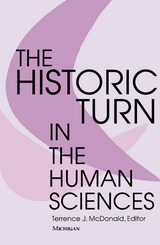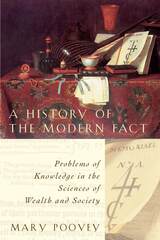162 books about Social sciences and 3
start with H
162 books about Social sciences and 3
162 books about Social sciences
3 start with H start with H
3 start with H start with H

Henri Lefebvre on Space
Architecture, Urban Research, and the Production of Theory
Lukasz Stanek
University of Minnesota Press, 2010
In this innovative work, Lukasz Stanek frames a uniquely contextual appreciation of Henri Lefebvre’s idea that space is a social product. Stanek explicitly confronts both the philosophical and the empirical foundations of Lefebvre’s oeuvre, especially his direct involvement in the fields of urban development, planning, and architecture.
Countering the prevailing view, which reduces Lefebvre’s theory of space to a projection of his philosophical positions, Stanek argues that Lefebvre’s work grew out of his concrete, empirical engagement with everyday practices of dwelling in postwar France and his exchanges with architects and planners. Stanek focuses on the interaction between architecture, urbanism, sociology, and philosophy that occurred in France in the 1960s and 1970s, which was marked by a shift in the processes of urbanization at all scales, from the neighborhood to the global level. Lefebvre’s thinking was central to this encounter, which informed both his theory of space and the concept of urbanization becoming global.
Stanek offers a deeper and clearer understanding of Lefebvre’s thought and its implications for the present day. At a time when cities are increasingly important to our political, spatial, and architectural world, this reassessment proposes a new empirical, and practical, interpretation of Lefebvre’s ideas on urbanism.
[more]

The Historic Turn in the Human Sciences
Terrence J. McDonald, Editor
University of Michigan Press, 1996
In The Historic Turn in the Human Sciences eleven scholars widely known for their interdisciplinary work investigate one of the most striking developments in the intellectual world today: the return to history by a wide range of academic disciplines. From "new historicism" in literary theory, to "ethnohistory," to "historical sociology," these new approaches have resulted both in more works of historical analysis and in a more self-conscious attempt to locate the human sciences in their own histories.
The essays in The Historic Turn in the Human Sciences--eight of them published here for the first time--take stock of these changes from the perspectives of some of the disciplines most deeply involved: anthropology, sociology, political science, law, literary studies, and history itself. Many of the authors have played a crucial role in producing the historic turn in their own disciplines. The volume as a whole, therefore, goes significantly beyond a mere inventory of these changes to ask how and how much history can make a difference; how the practice of history is affected by post-structural and other theories; and what is left of both unproblematized history and social science after the historic turn.
Taken together the essays give a sense both of what these various turns to history have in common and what sets them apart. This comparative dimension distinguishes the volume from those that have analyzed the impact of history on a single field or have assayed its effects without including historians themselves.
In the wake of the historic turn neither the historical actor nor the historical analyst will ever again be seen as a colossus striding over the pages of history. This volume explains in an extraordinary thought-provoking and challenging way why this must be so.
Terrence J. McDonald is Professor of History, University of Michigan.
The essays in The Historic Turn in the Human Sciences--eight of them published here for the first time--take stock of these changes from the perspectives of some of the disciplines most deeply involved: anthropology, sociology, political science, law, literary studies, and history itself. Many of the authors have played a crucial role in producing the historic turn in their own disciplines. The volume as a whole, therefore, goes significantly beyond a mere inventory of these changes to ask how and how much history can make a difference; how the practice of history is affected by post-structural and other theories; and what is left of both unproblematized history and social science after the historic turn.
Taken together the essays give a sense both of what these various turns to history have in common and what sets them apart. This comparative dimension distinguishes the volume from those that have analyzed the impact of history on a single field or have assayed its effects without including historians themselves.
In the wake of the historic turn neither the historical actor nor the historical analyst will ever again be seen as a colossus striding over the pages of history. This volume explains in an extraordinary thought-provoking and challenging way why this must be so.
Terrence J. McDonald is Professor of History, University of Michigan.
[more]

A History of the Modern Fact
Problems of Knowledge in the Sciences of Wealth and Society
Mary Poovey
University of Chicago Press, 1998
How did the fact become modernity's most favored unit of knowledge? How did description come to seem separable from theory in the precursors of economics and the social sciences?
Mary Poovey explores these questions in A History of the Modern Fact, ranging across an astonishing array of texts and ideas from the publication of the first British manual on double-entry bookkeeping in 1588 to the institutionalization of statistics in the 1830s. She shows how the production of systematic knowledge from descriptions of observed particulars influenced government, how numerical representation became the privileged vehicle for generating useful facts, and how belief—whether figured as credit, credibility, or credulity—remained essential to the production of knowledge.
Illuminating the epistemological conditions that have made modern social and economic knowledge possible, A History of the Modern Fact provides important contributions to the history of political thought, economics, science, and philosophy, as well as to literary and cultural criticism.
Mary Poovey explores these questions in A History of the Modern Fact, ranging across an astonishing array of texts and ideas from the publication of the first British manual on double-entry bookkeeping in 1588 to the institutionalization of statistics in the 1830s. She shows how the production of systematic knowledge from descriptions of observed particulars influenced government, how numerical representation became the privileged vehicle for generating useful facts, and how belief—whether figured as credit, credibility, or credulity—remained essential to the production of knowledge.
Illuminating the epistemological conditions that have made modern social and economic knowledge possible, A History of the Modern Fact provides important contributions to the history of political thought, economics, science, and philosophy, as well as to literary and cultural criticism.
[more]
READERS
Browse our collection.
PUBLISHERS
See BiblioVault's publisher services.
STUDENT SERVICES
Files for college accessibility offices.
UChicago Accessibility Resources
home | accessibility | search | about | contact us
BiblioVault ® 2001 - 2024
The University of Chicago Press









